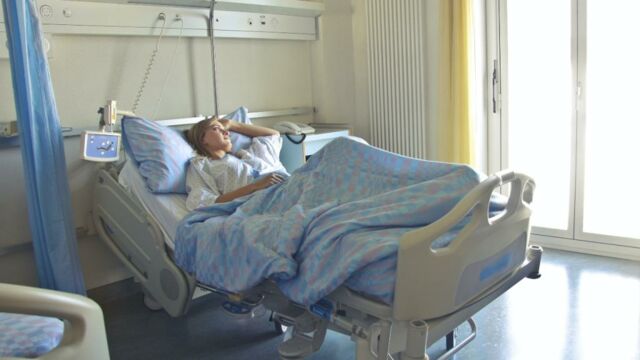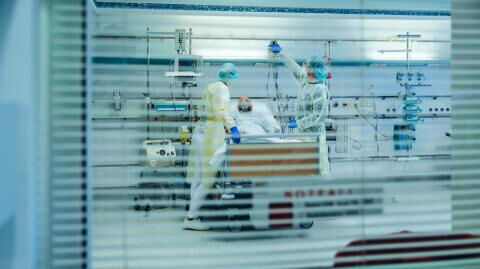COVID is an unpredictable disease that manifests differently in different individuals. Some escape its wrath with nothing more than a fever and headache, while others are left with lingering symptoms that last for months on end. Scientists from the University of Stanford have now found that half of the patients who are hospitalised with serious cases of COVID develop autoantibodies that fight their own tissues and organs.
Discover our latest podcast
Researchers are now suggesting that this autoimmune reaction could be one of the reasons behind long COVID.
The study
The team of researchers collected blood samples which were drawn during March and April 2020 from around 200 hospitalised COVID patients. They also used blood samples drawn from healthy donors, before the pandemic, as their control group.
Through the study they were able to identify antibodies that targeted the virus, autoantibodies that targeted the body’s tissues, and antibodies directed against cytokines—small proteins important for cell signaling.
Their findings showed that more than 60% of the hospitalised had levels of anti-cytokine antibodies. In comparison, only 15% of the healthy control group had the same antibodies.
Furthermore, about 20% of the patients had developed new self-attacking antibodies within a week of admission. PJ Utz, professor of immunology and rheumatology at Stanford Medicine and senior author of the study said:
Within a week after checking in at the hospital, about 20% of these patients had developed new antibodies to their own tissues that weren’t there the day they were admitted.
In many cases, these autoantibody levels were similar to what you’d see in a diagnosed autoimmune disease.
‘Lifetime of trouble’
The new revelations have further stressed the importance of vaccination, as Utz added that even if patients do recover from COVID, they'll be harbouring autoantibodies that could lead to an autoimmune condition like lupus, celiac disease, and Type 1 diabetes. He continued:
If you get sick enough from COVID-19 to end up in the hospital, you may not be out of the woods even after you recover.
If you do get a bad case, you could be setting yourself up for a lifetime of trouble because the virus may trip off autoimmunity. We can’t say yet that you’ll definitely get an autoimmune disease — we haven’t studied any patients long enough to know whether these. autoantibodies are still there a year or two later, although we hope to study this — but you certainly might. I wouldn’t want to take that chance.















